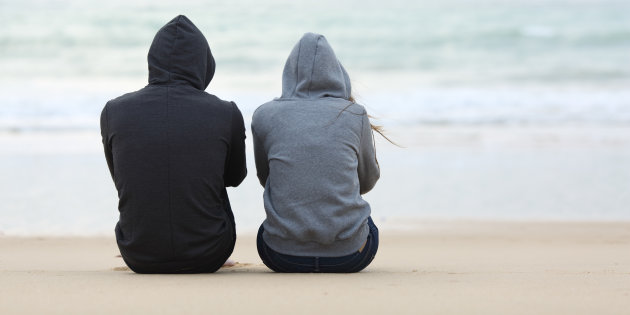 This is Janie Brown’s beautifully compassionate and loving response to a friend’s struggle with mental illness and later, suicide. The original piece was featured on Krista Tibbett’s “On Being” blog, where Janie Brown was a guest contributor.
This is Janie Brown’s beautifully compassionate and loving response to a friend’s struggle with mental illness and later, suicide. The original piece was featured on Krista Tibbett’s “On Being” blog, where Janie Brown was a guest contributor.
Dearest you,
The phone message you left yesterday from an unidentified B&B somewhere on Vancouver Island said I would know by morning whether you had chosen to live or die. You said the pills were lined up, counted, on the dresser.
A month before when you were unraveling again, you asked us, your closest friends, what we thought about you choosing to end your life, and we all said the same thing: “You must be tired of it all after so many cycles of mental illness in your sixty-two years, but with medication and therapy you always get better.” We always had a “but,” a reason we wanted you to keep choosing life. We hadn’t accepted you had a terminal illness then, a terminal mental illness. If you had advanced cancer, we might not have tried so hard to encourage you to keep going, if you hadn’t wanted to.
Today, I know what I want. I want you to live so we’ll carry on being friends, as we have for twenty-five years. I want you to continue to sharpen my knives and bring me organic beef for the freezer when you come to town. I want to call and hear your business voice on the answering machine. I want to look across the room and feel your heart as wide as the universe as you play your ukulele with abandon, your voice belting out Bob Marley’s “No Woman, No Cry.” I want to feel your love for me, your deep caring that my life matters to you.
Most of all I want you to be happy.
But I know it’s not about what I want.
If you choose to live maybe you’ll find a sweet little home here in Vancouver just around the corner from us, and we can have dinners, and music nights, walks, and late-night conversations. We can work together, cook together, and drink good wine together. Ultimately, we would see each other through and out of this life.
If you choose to die tonight, I will carry no judgment, just a huge ache in my heart of missing you. You have lived a beautiful life, and a tough one. You have had to encompass more internally than anyone I have ever known, and I have nothing but admiration and respect for the way you have conducted your life. You are a good person. You have tried. You have succeeded on so many levels. I hope that if you choose to leave, you will truly know what a life of devoted service you’ve lived, and that you have loved, and that you have been loved in return.
Whether you choose to live or die today, I will always love you.
She chose to live that night. She said she was too scared to be alone, as she died.
A week later her psychiatrist and her closest friends encouraged her to go to a hospital where she would be kept safe from harming herself, and hopefully receive the treatment she needed to heal.
Even though she persuaded the occupational therapist to take her grocery shopping so she could make mulligatawny soup for the other in-patients (being a nutritionist, she worried the hospital food wouldn’t help them to get well); even though we snuck her out to a restaurant for a big salad, and a hearty glass of Cabernet Sauvignon against hospital regulations.
Even though we took a guitar and songbooks to the common room of the acute psychiatric unit, and sang together, and doors opened and patients peeked out, slowly sidling up to join the sing-a-long until an anxious nurse shut us down for fear of over-stimulating the patients.
Even though she did her best to maintain her dignity as her body survived the cycle of acute illness — her soul withered, slowly and quietly, over those months committed to a psychiatric unit.
Six months after she returned home, she told me she was unraveling again. She didn’t ask her friends what she should do, or tell them what she intended to do. One year ago this month, she didn’t wait until she was too ill to make the choice to die.
The day someone you love chooses to die must always feel too soon. September 5, 2014 was too soon for me, but I know it was likely not a moment too soon for my beloved friend. That day ended a lifetime of living with the enormous challenge of mental illness, a lifetime of immense loving and whole-hearted living, and a lifetime that impacted me more than I can possibly comprehend yet.
Janie Brown is the executive director of the Callanish Society, a nonprofit organization she co-founded in 1995 for people who are irrevocably changed by cancer, and who want to heal, whether it be into life, or death. An oncology nurse and therapist for almost thirty years, Janie explores her ideas through stories on her blog www.lifeindeath.org and is working on her first book.









